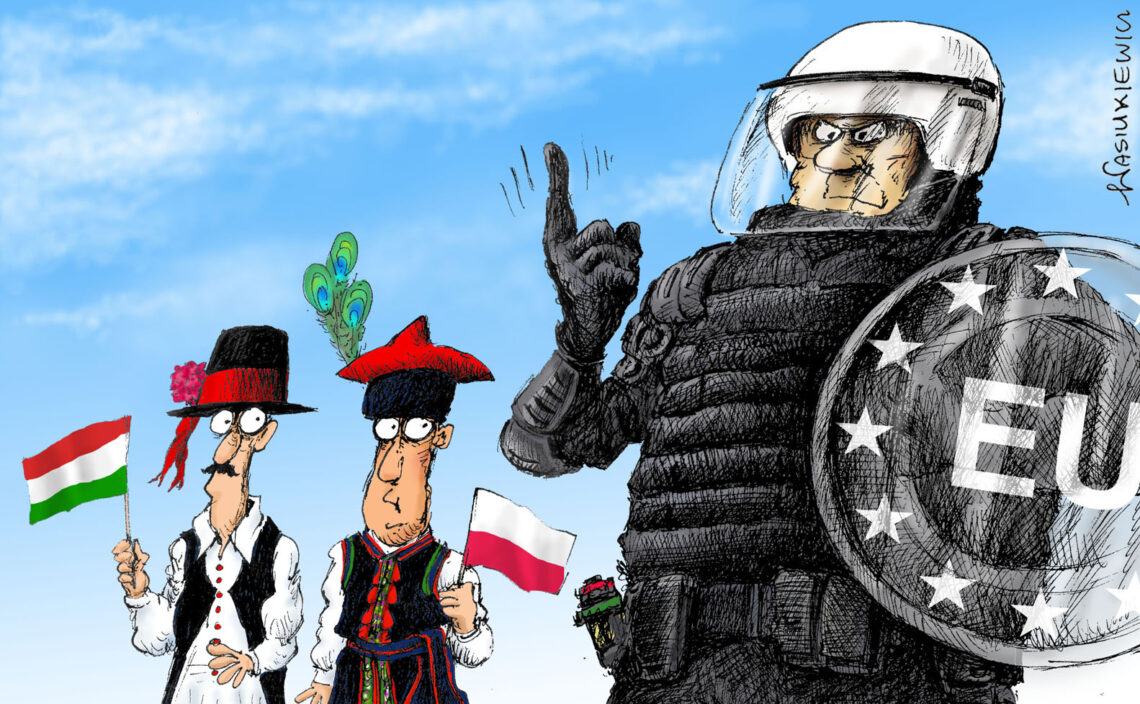100 years of Hungary’s dictated peace
The Treaty of Trianon handed 72 percent of its land to neighboring states. While Hungarians have every right to reflect on the unfairness of the peace terms, this year’s ceremony has taken place amid much criticism from Western member states of the European Union.

In June 1920, after the end of World War I, a humiliating peace was forced on Hungary, denying the Hungarian delegation any possibility to negotiate.
In his book A Peace to End All Peace, the great historian David Fromkin explained how the Ottoman Empire, an ally of Germany and Austria-Hungary, was filleted after World War I. In order to weaken the Turks and protect the Suez Canal, British agents engineered a revolt in the Arab world, promising local populations control over the Middle East. The uprisings led to terrorist attacks targeting not only the Turkish military, but also civilians. After the war, London and Paris divided the region between themselves and betrayed their promises to Arab leaders, sowing the seed of today’s tragedy in the Middle East.
Harsh conditions
It is well known that the harsh peace conditions of the Versailles Treaty that were imposed on Germany in 1919 laid the ground for the rise of the National Socialists in Germany. Few people know, however, that even more brutal conditions were enforced on Austria and Hungary in the treaties of Saint-Germain-en-Laye and Trianon, respectively. The Austrian-Hungarian Empire was dissolved. The blame for the war was placed on the two small countries that emerged, present-day Austria and Hungary – an outcome that historians now view as unjustified.
Christopher Clark, another outstanding chronicler of European history, clearly explains the real reasons behind World War I in his book, The Sleepwalkers. Although the murder of the Archduke Franz Ferdinand, the Austro-Hungarian successor to the throne, triggered the hostilities, the causes rested in London, Paris, St. Petersburg and Berlin rather than in Budapest or Vienna. The British Empire felt that its maritime supremacy was jeopardized by the rise of Germany and its position in India threatened by the Russian Empire. London believed a war between the two powers would be in its interest.
France, meanwhile, harbored revisionist sentiments toward Germany. Its extremely nationalist and secular government despised the idea of supranational monarchy, which the Habsburgs embodied. The willful destruction of the Habsburg Empire allowed Adolf Hitler to control the whole region two decades later and to start World War II, along with the Soviet Union.
A hundred years ago, Hungary lost two-thirds of its former territory and about half of its population.
A hundred years ago, in the callous dictate of Trianon, Hungary lost two-thirds of its former territory and about half of its population. The Triple Entente powers, Britain, France and Russia, bribed Romania to attack the Habsburgs, promising Bucharest a vast part of the Kingdom of Hungary – mainly Transylvania, whose territory was larger than what was left to the Hungarian state. Italy was also paid to enter the war with promises of Austrian and Hungarian territory. The newly created state of Czechoslovakia was rewarded with the former Upper Hungary, present-day Slovakia.
That Hungary feels violated is quite understandable. Europe is now accusing Budapest of revisionism because of its commemoration of the event. However, it is justified to point out that such an outcome was regrettable and undeserved.
The Austro-Hungarian Empire played a crucial role as a shelter for the different linguistic groups of Central Europe. The Kingdom of Hungary was Europe’s last bastion against invasions from the east for almost a thousand years.
Unfortunately, today’s Western Europe does not appreciate the historical and contemporary importance of Central Europe, which leads to misinterpretations. Central European countries are increasingly deemed too immature for democracy. This is clearly wrong. The experience of the Soviet yoke, spanning over two generations, means countries in the region are sensitive to any limitations on their freedom and self-determination.
Calling the Trianon Memorial in Budapest revisionist is an obvious mischaracterization. Hungarian Prime Minister Viktor Orban requested special powers to tackle the coronavirus. Whether or not this was necessary can be debated, but the authority he was granted was no more far-reaching than that claimed by other European governments these past months. Prime Minister Orban will relinquish the emergency powers in June 2020.
Common practices
Hungary is now being widely accused of no longer being a liberal democracy, although the terms “liberal democracy” could use a more precise definition.
Other Central European countries are being similarly branded. Rules should not be circumvented, but breaches do not only happen in Central Europe. Under the pretext of fighting terrorism or prosecuting crime (not preventing it, interestingly enough), the so-called liberal democracies of Western Europe and the European Parliament heavily infringe on the privacy rights of their citizens – sometimes violating the presumption of innocence.
Lawbreaking must not be tolerated, whether by member states, the European Commission, Council or Parliament.
For example, the data retention directive of the European Parliament goes against a ruling of the European Court. It also treats the entirety of the European population as suspects. Moreover, the tax laws of most countries contravene the presumption of innocence.
Lawbreaking and curtailing civil rights and freedoms must not be tolerated, whether by member states, the European Commission, Council or Parliament.
We can deplore that such practices are so common in Europe. However, it is dangerous to single out certain countries only because they jealously safeguard their autonomy. Central European countries are democratic and crucial for Europe.
